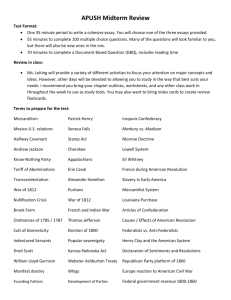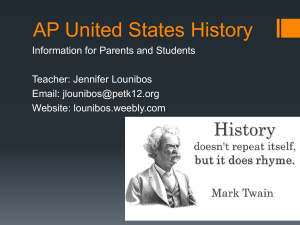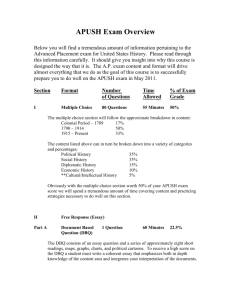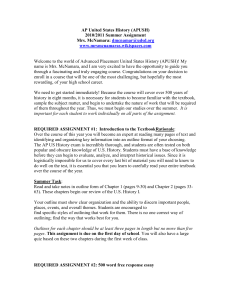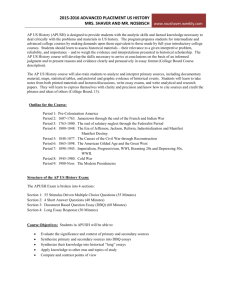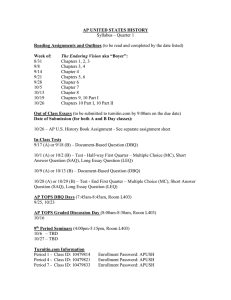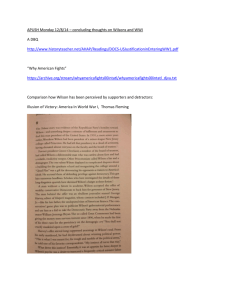AP US History
advertisement
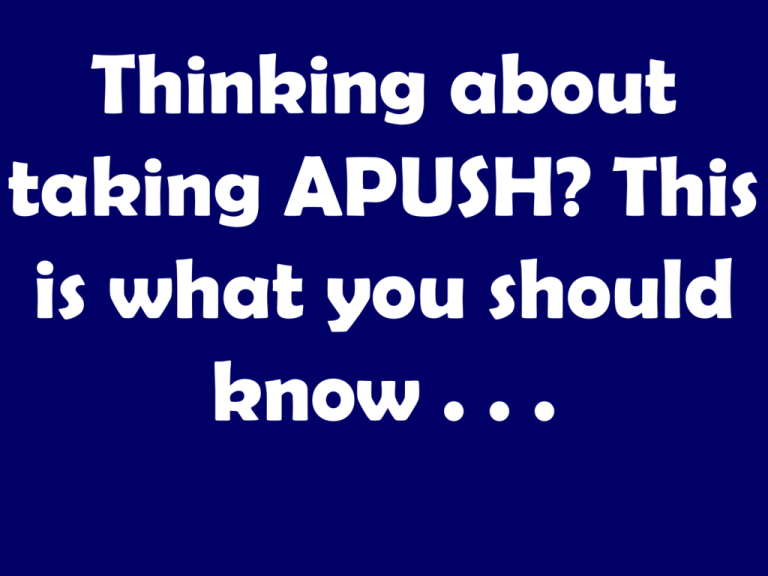
Thinking about taking APUSH? This is what you should know . . . The class is a college-level course with college text. Textbook: The American Pageant: A History of the Republic , Sixteenth Edition by David M. Kennedy, Lizabeth Cohen, and Thomas A. Bailey The summer assignment includes reading six chapters. For each chapter, the prospective APUSH student must complete four handwritten pages of notes and complete an online quiz. The summer assignment will be handed in the first day of class. A exam over the six chapters will be given during the first two weeks of the fall semester. During the school year, there is at least one chapter to read per week; there are no vacations – reading is assigned over every vacation throughout the year. Book notes and the online quiz must be completed for each of forty-one chapters assigned in the book. For every hour spent in class, a corresponding hour should be spent at home reading and studying. The quizzes and exams are extremely difficult. The course includes several types of writing to prepare for the AP exam: a documentbased essay (DBQ), short-answer essays, and a long-answer essay. All writings are timed and will be graded according to the College Board rubric for APUSH. If you are signing up because you love military history, you should know that military history is a minimal part of the course. Political history, economic history and social history are the focal points of the course. The College Board AP exam given in the spring consists of these parts: Section 1: Part A: 55 multiple-choice questions Part B: four short answer essays Section 2: Part A: DBQ Part B: Long-answer essay question The 55 multiple choice questions will have a time limit of 55 minutes weighted at 40%. The short-answer essay questions portion of the exam will take 50 minutes and is weighted at 20%. The document-based question will be timed at 55 minutes; it will be weighted at 25%. The long essay will be timed at 35 minutes, and it will be weighted at 15%. A successful APUSH student is committed to reading and studying. Reading comprehension is key, as is being an articulate writer and a critical thinker. And yes, there is a lot of memorization of names, dates, and events that go into the study of US History! Questions? Contact Ms. Michelena at smichelena@powayusd.com
